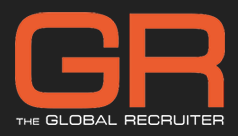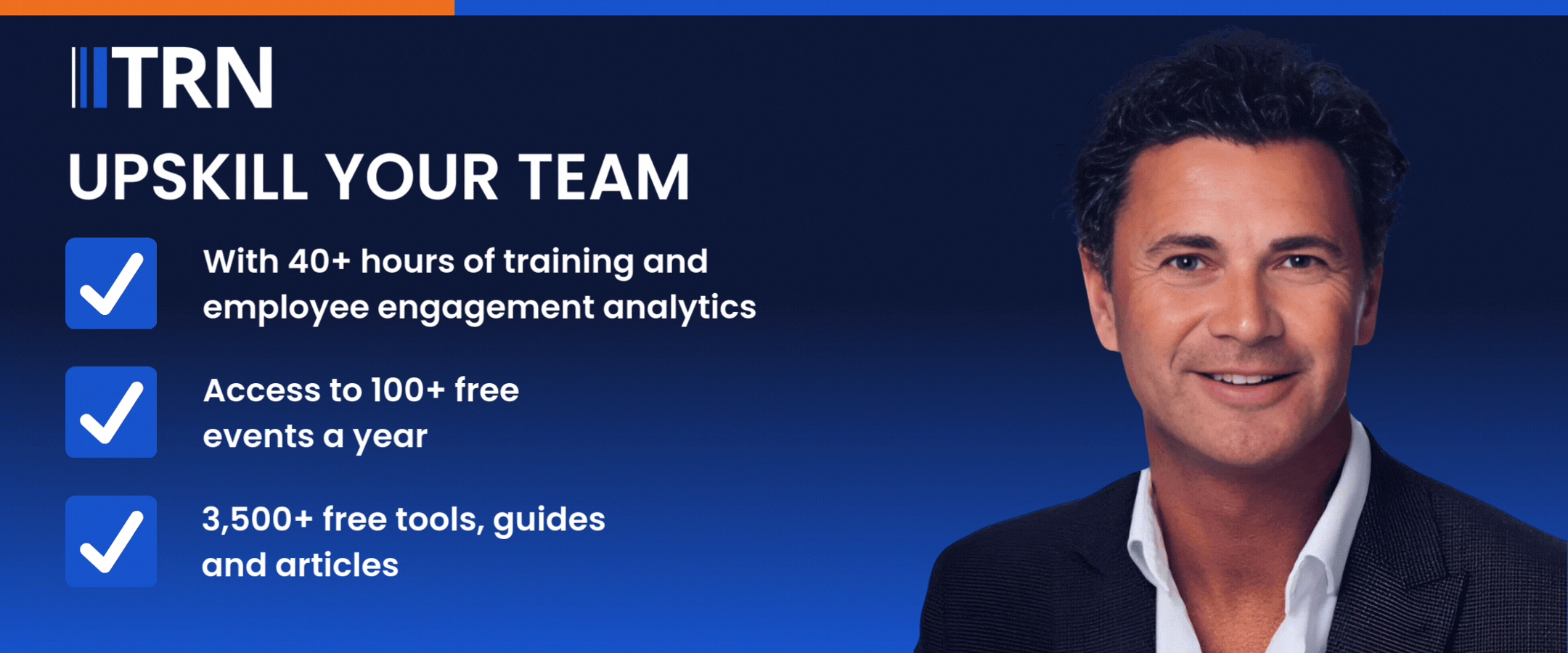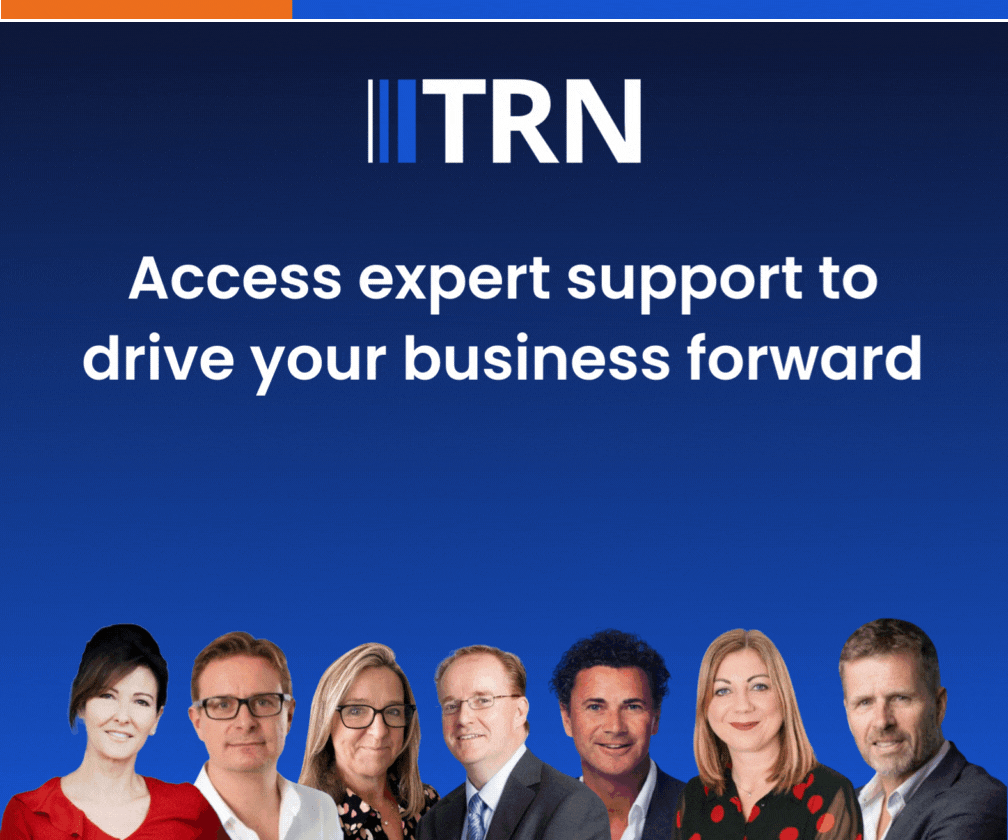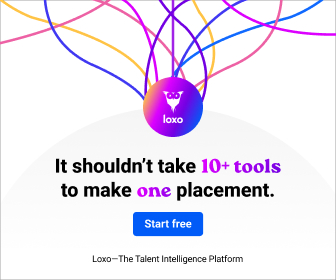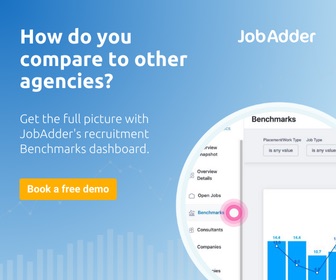Introduction
The transformative power of Artificial Intelligence (AI) has
become increasingly evident in the recruitment sectors. As
firms strive to maintain agility in a competitive market,
integrating AI into recruitment processes is now a priority for
recruiting leaders.
AI will not only future-proof recruitment strategies but also
accelerate business growth and performance. It offers
significant advantages by saving time, reducing costs, and
optimising resource allocation.
What we’ll cover:
- How AI is forecasted to reshape the recruitment landscape
- What AI integration means for business operations and the
future of the recruitment industry - AI in action today
How AI is Reshaping the Recruitment Landscape
Increased Speed of Candidate Screening
Current: Manual screening and onboarding is slow and can fail to identify
the most qualified candidates. Right now, AI upgrades this process by
parsing and analysing resumes to quickly extract important information
from applicants, identify key skills and qualifications, and match the best
candidates for the role.
On the Horizon: Autonomous and assistive AI agents that are equipped
with the necessary business knowledge to execute tasks according to
their specific role. They can compliment recruiter workflows by
performing actions based on predefined directions or perform certain
tasks proactively and escalate to recruiters when necessary.
Impact: AI Agents will be able to autonomously engage with candidates
to help screen, qualify and also answer their questions in the same
manner that a recruiter can. They will be able to scale to demand and
work with a recruiter to speed up time to fill and provide improved
candidate engagement.
Quick Analysis of Candidate Profiles
Current: Manual resume and profile screening can miss deeper insights
into a candidate’s skills and potential, often leading to mismatches
between candidates and job roles.
On the Horizon: AI goes deeper by generating comprehensive candidate
summaries that include insights into skills, experiences, and potential fit
for a role, enhancing the recruiter’s depth of understanding for each
candidate and improving placement accuracy.
Impact: As AI becomes increasingly reliable, recruiters will spend minimal
time reviewing candidates before submission to job openings or clients.
This is particularly beneficial in high-volume sectors like commercial
recruiting, where quick and accurate placements are critical.
Business Intelligence Powered by AI
Current: Recruiters currently rely on traditional data analysis tools and
methodologies to make sense of recruitment data. These methods often
handle limited data sets and can fall short in uncovering the deeper,
more complex patterns and insights.
On the Horizon: AI excels at processing vast amounts of structured and
unstructured data, identifying patterns, and synthesising insights across
diverse data sources. This capability enables a more comprehensive
understanding of recruitment performance by uncovering patterns
between different data sources that help inform key decisions.
Impact: With business intelligence backed by AI, organisations can
transform data patterns into actionable intelligence, uncovering insights
that drive innovation in the right direction, powering more strategic
business growth while optimising overall recruitment operations.
Importance of Ethical AI Use
Current: AI use in recruitment raises ethical concerns around biases and
transparency in automated processes.
On the Horizon: AI is being designed with a strong ethical framework,
incorporating transparency, fairness, and accountability into every aspect
of its operations to maintain the integrity of the recruitment process.
Impact: By prioritising ethical considerations, AI reduces human
prejudices and biases, fostering a more equitable recruitment
environment. AI systems will champion trust and fairness through regular
audits and by training models on diverse datasets. This ensures that
recruitment practices remain inclusive and unbiased, ultimately
enhancing the quality and fairness of hiring decisions.
AI’s Impact on the Recruiting World
The recruitment industry is undergoing significant changes due to AI integration, leading to a shift in skill requirements, the evolution of recruiter roles, the rise in usage of AI-driven recruitment tools, and a focus on ethical AI use. These pillars are transforming how businesses operate, emphasising the need for continuous learning, strategic thinking, and a commitment to transparency and fairness with AI.
Evolution of Recruiter Roles + Collaborating with AI Agents
For the everyday recruiter AI should aim to make their
job easier, faster and less mundane. Collaborating with
AI Agents will make this possible, since they are
designed to work alongside recruiters to augment
certain tasks and take actions that simplify and
streamline workflows.
With AI’s growing role in recruiting, there is an
increased emphasis on ethical use, highlighting the
need for transparency, fairness, and accountability in
algorithmic decision-making to ensure unbiased,
inclusive hiring practices.
This symbiotic relationship between recruiters
and AI Agents will drive the future of the
recruitment industry, making recruitment
processes more efficient and effective.
Rise of AI-Driven Recruitment Tools + Focus on Ethical AI Use
The staffing industry is increasingly adopting new tools
featuring generative AI, predictive analytics, natural
language processing, and machine learning, making
recruitment outcomes more proactive, predictive, and
precise.
With AI Agents handling tasks such as real-time data
and call summaries, coaching recruiters through client
or sales calls, engaging candidates 24/7 or even
providing advice, AI Agents will free up recruiter’s time.
Now recruiters can focus on upgrading engagement,
relationship-building and strategic planning for clients
and candidates.
Recruiters will be transitioning from administrative
to more strategic roles, using AI to enhance
decision-making and deliver greater value to
candidates and clients.
AI’s Impact on Business Operations
Increased Efficiency, Productivity, and Quality of Hire
AI will automate manual, repetitive tasks, reducing
errors and boosting operational efficiency, allowing
recruiters to focus on strategic initiatives like client
relationships and candidate experiences. It also
enhances the quality of hires through more precise
screening and assessment, resulting in better job
matches, higher job satisfaction, and reduced turnover.
Cost Savings and Competitive Advantage
AI-driven recruitment significantly cuts costs by
reducing time-to-fill and lowering turnover through
smarter candidate matching. These efficiencies lead to
savings on hiring and training while improving
retention rates.
Organisations leveraging AI gain a competitive edge
by staying ahead of industry trends, attracting top
talent, and swiftly adapting to market changes.
Embracing AI not only transforms recruitment
practices but also ensures your business is
well-positioned for sustained success in a dynamic
job market.
